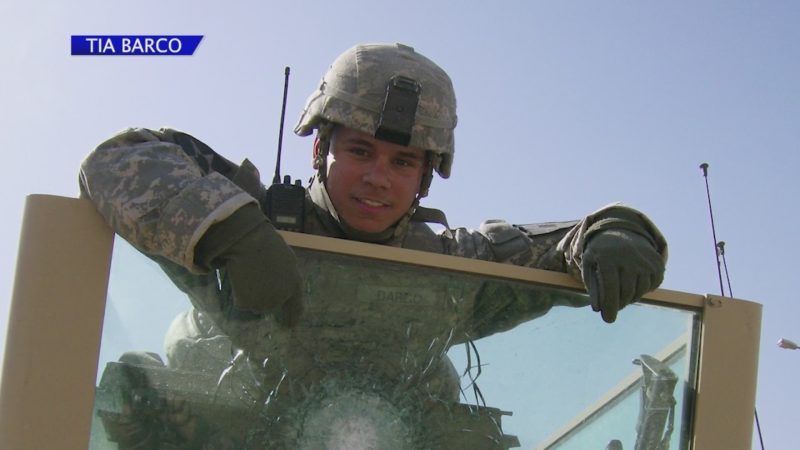Lifestyle
ICE Deports Veteran Jose Barco-Chirino to Mexico After Service

Jose Barco-Chirino, a former U.S. Army combat veteran and Purple Heart recipient, has been deported to Mexico following a decision by U.S. Immigration and Customs Enforcement (ICE). Barco-Chirino served two tours in Iraq and sustained injuries during combat. His deportation has raised significant concerns regarding the treatment of veterans by immigration authorities.
Barco-Chirino, originally from Mexico, applied for U.S. citizenship while deployed in 2006. Despite his service and sacrifices, he faced legal challenges that ultimately led to his deportation from Colorado. His case draws attention to the complex intersections of military service, immigration status, and legal rights in the United States.
Background on Deportation Case
The circumstances surrounding Barco-Chirino’s deportation began when he encountered legal issues related to his immigration status. Although he served honorably, his application for citizenship was delayed, and he eventually faced deportation proceedings. Critics argue that veterans like Barco-Chirino deserve better treatment, particularly given their sacrifices for the nation.
Barco-Chirino’s service in Iraq was marked by bravery. He was awarded the Purple Heart for his injuries sustained in combat, a recognition of his valor and commitment to his country. His deportation not only affects him but also highlights the broader issue of how veterans are treated within the immigration system.
Community Response and Advocacy
The news of Barco-Chirino’s deportation has sparked outrage among veterans’ groups and advocates for immigrant rights. Many argue that deporting a decorated veteran undermines the values of the nation that he served. Organizations are mobilizing to support Barco-Chirino and to seek reform in immigration policies that impact veterans.
Advocates have pointed out that veterans who face deportation often have unique circumstances that merit consideration. Barco-Chirino’s situation underscores the need for a more compassionate approach to immigration laws, especially for those who have risked their lives in military service.
Barco-Chirino’s story is not an isolated case. Many veterans find themselves navigating a complicated legal landscape that can lead to deportation, despite their service to the country. He has become a symbol of the struggles faced by veterans dealing with immigration issues.
The legal complexities surrounding Barco-Chirino’s case continue to unfold as advocates work to bring attention to his plight. The case raises important questions about the treatment of veterans in the immigration system and the responsibilities of the government to those who have served.
As discussions regarding immigration reform continue, Barco-Chirino’s deportation serves as a powerful reminder of the human impact of policy decisions. The community response illustrates a growing demand for justice and recognition of the sacrifices made by those in uniform.
Barco-Chirino’s journey is a testament to the challenges faced by veterans who, despite their dedication, encounter hurdles in their pursuit of citizenship. The outcome of his case may influence future policies and the treatment of veterans within the immigration system.
-

 Science1 month ago
Science1 month agoIROS 2025 to Showcase Cutting-Edge Robotics Innovations in China
-

 Science2 weeks ago
Science2 weeks agoUniversity of Hawaiʻi at Mānoa Joins $25.6M AI Initiative for Disaster Monitoring
-

 Lifestyle1 month ago
Lifestyle1 month agoStone Island’s Logo Worn by Extremists Sparks Brand Dilemma
-

 Health1 month ago
Health1 month agoStartup Liberate Bio Secures $31 Million for Next-Gen Therapies
-

 World1 month ago
World1 month agoBravo Company Veterans Honored with Bronze Medals After 56 Years
-

 Politics1 month ago
Politics1 month agoJudge Considers Dismissal of Chelsea Housing Case Citing AI Flaws
-

 Lifestyle1 month ago
Lifestyle1 month agoMary Morgan Jackson Crowned Little Miss National Peanut Festival 2025
-

 Health1 month ago
Health1 month agoTop Hyaluronic Acid Serums for Radiant Skin in 2025
-

 Science1 month ago
Science1 month agoArizona State University Transforms Programming Education Approach
-

 Top Stories1 month ago
Top Stories1 month agoIndonesia Suspends 27,000 Bank Accounts in Online Gambling Crackdown
-

 Sports1 month ago
Sports1 month agoMel Kiper Jr. Reveals Top 25 Prospects for 2026 NFL Draft
-

 Business1 month ago
Business1 month agoTruist Financial Increases Stake in Global X Variable Rate ETF









